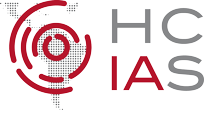Focus 1 · Multiple Transformations and Social Cohesion in Ibero-America
First lines of research
Researchers
RESEARCH FOCUS · Relationships and interdependencies between political, economic, social, and cultural-ideological transformations, inclusive and innovative socio-economic development, and social cohesion in Ibero-America
Focus 1 brings together perspectives from political science, economic geography, sociology, economics, and religious studies in order to study the relationships between and interdependencies of social, economic, cultural, and political transformations, inclusive and innovative socio-economic development, and social cohesion in Ibero-America. In the last few decades, this area has undergone extensive changes in all spheres of societal organization. These changes have accelerated profoundly in the first two decades of the 21st century due to globalization and new information and communication technologies, which have put social cohesion to the test.
In the political sphere, democracy has asserted itself as the main form of rule since the mid-70s, with few exceptions. Its consolidation, however, has only partially been achieved and has been subject to authoritarian relapses, especially in Latin America. Ibero-America’s economic systems have been influenced by the “neoliberal turn“ and the growing globalization of the world economy. This has not only brought significant changes to economic structures but also to situations of social conflict, and it has also contributed to political ruptures which have led to the resurgence of populist currents. At the same time within the social systems of Ibero-America, these systemic changes were confronted with deep-rooted traditional social structures. The persistence of such structures is expressed through unaltered social inequality and the presence of informal ground rules. In turn, the cultural systems experienced an “uneven“ modernization that oscillates between the traditionalism of various imprints and post-materialism. Simultaneously, these developments represent social processes of differentiation, pluralization, and fragmentation that interact in the political, economic, social, and cultural spheres.

Our research will focus on the question of to what extent democratic institutions function stably or to what extent they are recognized as the “only game in town”. The question of societal stability does not only encompass “bottom-up” challenges to institutions but also includes challenges from parallel forces that, in turn, are an indicator of deficient social cohesion. Closely related to these challenges are the dynamics of public communication, an area of research in which we focus on digital communication, political elites, and voter attitudes, and in which we relate our research interest to political participation and opinion formation online. Another aspect that we will concentrate on is the ability and competence of specific actors to transform political and economic models into functional economic and social programs. Inclusive institutions for economic development and spatial socioeconomic disparities are of particular interest, as well as the evolution of networks and their economic effects on knowledge and innovation. In this context, we are also interested in socioeconomic transitions and socio-ecological inequalities as well as the thereto-related communication dynamics. In addition, we will tackle the question of the extent to which path dependencies and regional trajectories in social cohesion can be strengthened or disrupted by individual and/or collective actors. Central aspects we will be focusing on are the inertia of the arrangements of the economic and political elite, as well as the production, reproduction, and transformation of patterns of social inequality and regional disparities in the wake of corporate inequality regimes. Concerning the questions relating to cultural systems, we will analyze the role of the church(es) and religious groups in political development and social cohesion, focusing on Latin America, where they are among the most highly regarded social/political institutions, influencing sensitive questions related to morals, as well as questions on social and economic ethics.
First lines of research
Political Transformation in Ibero-America
- Political institutions and processes: transformation of political institutions and the effects on political, social, and economic performance
- Political communication and socioeconomic inequalities: political communication and social cohesion; comparative, intra- and supra-regional studies on the disruptive dynamics in Ibero-America
- Violence and conflict: social cohesion as a cause and consequence of political transformation; conflict and political communication
Economic Transformation in Ibero-America
- Spatial organization of economic relations: entrepreneurship, development of regional and global networks and their effects on knowledge, innovation, and regional economic trajectories
- Role of institutions, regulations, and policies in economic development: institutional practices and their effect on economic development
- Governance of risks and resources: spatial problems of collective action, processes of governance, and the effect on the perception of collective goods
Social Transformation in Ibero-America
- Social inequality: production, reproduction, and change of social inequality induced by organizations, and the effects on society and the economy
- Path dependency of elitist arrangements in the neoliberal age: social division into elites and non-elites
- Systemic corruption and social transformation in terms of institutional change
Transformation of religions and ideologies in Ibero-America
- Churches, religious groups, and democracy: clerical values and their polarizing and/or integrating effects on political developments
- Churches, religious groups and cohesion: diversification of churches and religious groups and their attitude towards nationalist and populist tendencies
- Churches, religious groups, and justice: concepts of justice prevalent in churches and religious groups and their effect on ideas of justice prevalent in society
Researchers
Prof. Dr. Aurel Croissant (Institute of Political Science)
Jun.-Prof. Dr. Alejandro Ecker (HCIAS)
Prof. Dr. Jale Tosun (Institute of Political Science)
Dr. Peter Thiery (Institute of Political Science)
Prof. Dr. Johannes Glückler (Institute of Geography)
Dr. Michael Handke (Institute of Geography)
Jun.-Prof. Dr. Rosa Lehmann (HCIAS)
Elisabeth Maikranz (Ecumenical Institute)
Prof. Dr. Friederike Nüssel (Ecumenical Institute)
Prof. Dr. Markus Pohlmann (Max Weber Institute of Sociology)
Jun.-Prof. Dr. Pablo Porten-Cheé (HCIAS)
Dr. Elizangela Valarini (Max Weber Institute of Sociology)

